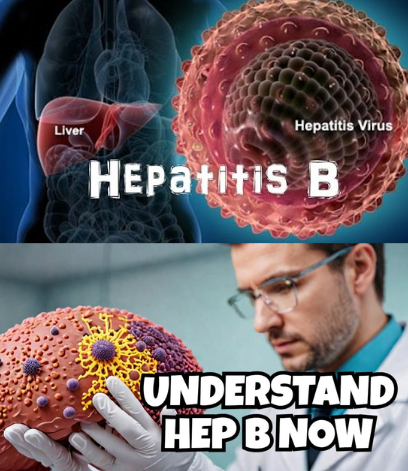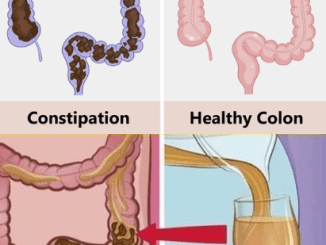
Understanding Hepatitis B
Your liver is like your body’s natural detox system, working tirelessly to filter toxins, produce vital proteins, and store nutrients. But when it’s attacked by the Hepatitis B virus (HBV), its function can become compromised. Hepatitis B is a viral infection that causes inflammation of the liver. It’s a global health issue, affecting millions, and while some people fight it off naturally, others develop chronic infection that can lead to cirrhosis or liver cancer. The key to managing Hepatitis B is awareness—knowing how it spreads, spotting symptoms early, and seeking treatment promptly.
How Hepatitis B Spreads
Hepatitis B is highly contagious, but it doesn’t spread casually through hugging, kissing, or sharing meals. The virus is transmitted through direct contact with infected blood or bodily fluids. The most common ways include:
- Mother-to-child transmission – A baby can contract HBV during childbirth.
- Unprotected sex – The virus can spread through semen, vaginal fluids, and blood.
- Shared needles – Drug use, tattoos, or piercings with unsterile equipment increase risk.
- Workplace exposure – Healthcare workers face higher risks from accidental needle sticks.
- Household contact – Sharing razors, toothbrushes, or personal items contaminated with blood.
Knowing these transmission routes is essential because Hepatitis B prevention often begins with safe practices.
Symptoms of Hepatitis B
Many people with Hepatitis B don’t show symptoms at first, making it a “silent” infection. When symptoms do appear, they may include:
- Fatigue and weakness
- Fever
- Abdominal pain, especially near the liver
- Loss of appetite and nausea
- Dark urine and pale stools
- Yellowing of the skin and eyes (jaundice)
- Joint pain
Acute infections may last a few weeks to months, but chronic cases can linger for life, damaging the liver silently over time.
Video : Hepatitis B: Explained
Acute vs. Chronic Hepatitis B
- Acute Hepatitis B – A short-term infection that develops within six months of exposure. Many people recover fully with no lasting liver damage.
- Chronic Hepatitis B – When the virus stays in the body longer than six months, it becomes chronic. This is more common if infection occurs at birth or during early childhood. Chronic HBV increases the risk of cirrhosis and liver cancer.
Think of it this way: acute infection is like a temporary storm, while chronic infection is a long-term climate shift that reshapes the liver’s health.
Complications of Hepatitis B
Ignoring Hepatitis B can lead to severe health problems, including:
- Cirrhosis – Permanent scarring of the liver, limiting its function.
- Liver failure – When the liver can no longer perform vital tasks.
- Hepatocellular carcinoma – A type of liver cancer strongly linked to chronic HBV.
- Kidney disease and blood vessel problems – In rare cases, HBV can damage other organs.
This is why early detection and management are critical to long-term health.
How Doctors Diagnose Hepatitis B
Hepatitis B is diagnosed using a series of blood tests:
- HBsAg (Hepatitis B surface antigen) – Confirms an active infection.
- Anti-HBs (surface antibody) – Shows immunity, either from recovery or vaccination.
- HBV DNA test – Measures the amount of virus in the blood.
- Liver function tests – Detect how much damage has been done to the liver.
In some cases, imaging tests or liver biopsies may be used to assess scarring or inflammation.
Treatment Options for Hepatitis B
Not all Hepatitis B cases require immediate treatment. The approach depends on whether it’s acute or chronic:
- Acute Hepatitis B – Often managed with rest, hydration, and supportive care. Most healthy adults recover naturally.
- Chronic Hepatitis B – May require long-term antiviral medications to control the virus. Drugs like tenofovir or entecavir are commonly prescribed.
- Liver monitoring – Regular check-ups, blood tests, and ultrasounds track liver health.
- Liver transplant – In cases of liver failure or advanced cancer, transplantation may be the only option.
Treatment doesn’t always eliminate the virus, but it reduces complications and helps people live healthy, full lives.
Prevention: Protecting Yourself and Others
The best defense against Hepatitis B is prevention. Steps include:
- Vaccination – The Hepatitis B vaccine is safe, effective, and offers long-term protection.
- Safe sex practices – Using condoms reduces transmission risk.
- Avoid sharing needles or sharp objects – Always use sterile equipment.
- Screening during pregnancy – Ensures newborns receive immediate preventive care.
- Regular testing – People at higher risk should get tested for early detection.
Prevention is like building a shield around your liver—it’s far easier than repairing damage later.
Living with Hepatitis B
A Hepatitis B diagnosis doesn’t mean life stops. With proper care, many people live long, healthy lives. Important tips include:
- Avoid alcohol, which accelerates liver damage.
- Maintain a healthy weight to reduce stress on the liver.
- Eat a balanced diet rich in fruits, vegetables, and lean protein.
- Stay active to support overall health.
- Keep all medical appointments and follow doctor’s recommendations.
Taking charge of your lifestyle gives your liver the best chance to stay strong.
Video : What you need to know about Hepatitis B
Conclusion
Hepatitis B is a serious viral infection, but it doesn’t have to define your future. By understanding how it spreads, recognizing symptoms early, and getting the right medical care, you can protect your liver and reduce risks of complications. Vaccination, safe habits, and regular monitoring are your best tools. Remember, your liver is your body’s powerhouse—guard it carefully, and it will keep you healthy for years to come.


